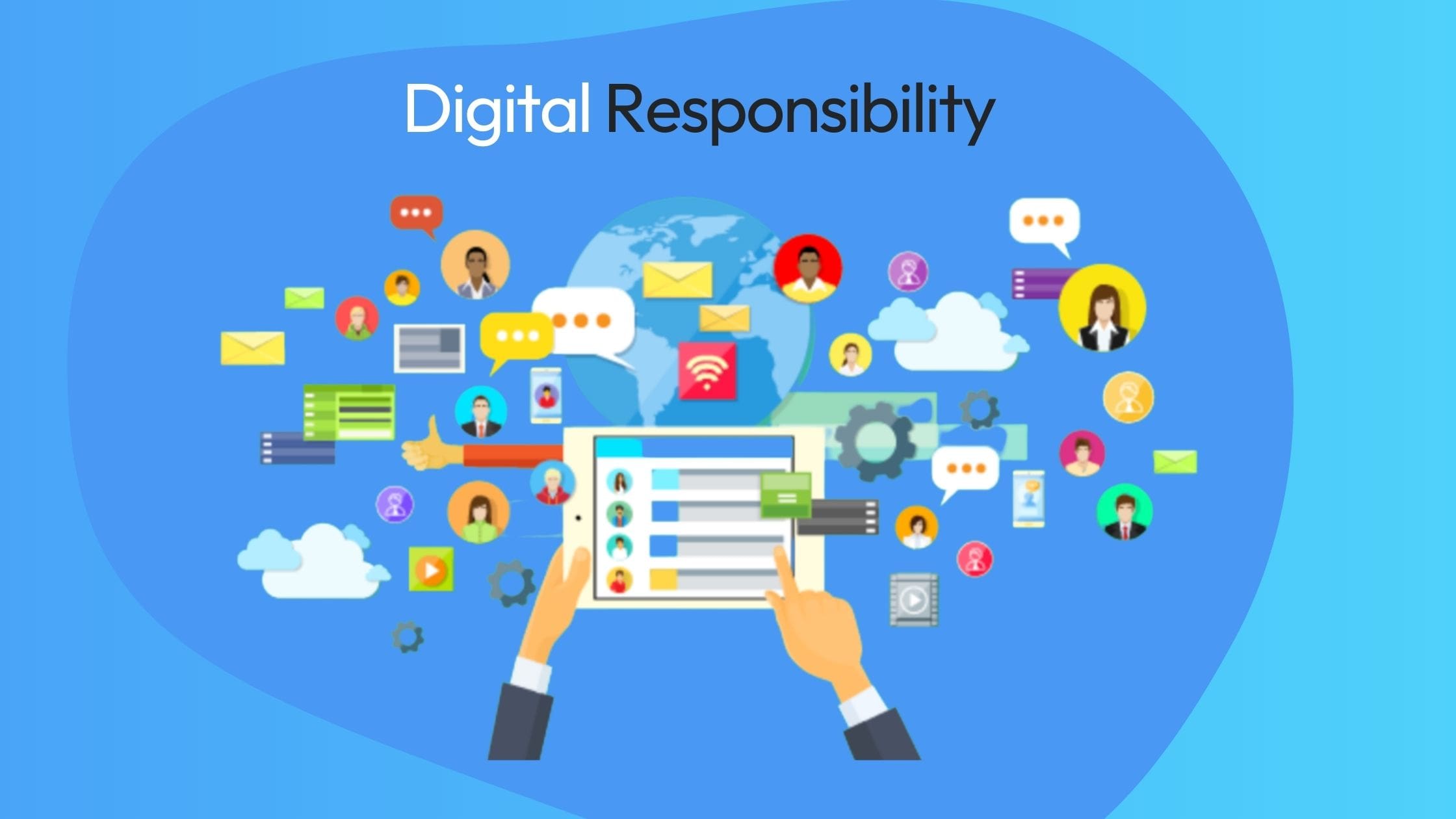Digital responsibility is huge. What to do, how to do it and what not to do all fall into the realm of online responsibility. Let’s talk about how to teach kids to be good digital citizens.
My kids love to be online. Whether they are chatting with friends via Facebook Messenger for kids or gaming on platforms such as Roblox or Fortnite, they love the digital world and all it entails. As a parent, I have a love-hate relationship with the Internet, realizing it can be both fun and educational as well as overwhelming and a bit scary.
In this new age of parenting, which encompasses navigating a digital world in a way our own parents didn’t have to, it is imperative to teach kids from a young age the responsibilities they have to be good citizens both on and off line. Not only will good digital citizenship keep them safe online, it will help them make positive choices in all aspects of their lives.

Important Talking Points with Kids regarding Digital Citizenship
When I first was deciding where I would start in terms of talking with my kids about internet safety and digital citizenship, I thought back to that State Farm commercial that was popular (and funny in a “too true” sort of way) a few years ago where a guy and a girl are talking and a dopey-looking guy approaches the girl. She tells the first guy that she met him on the internet and that’s he’s a French model. The “French model,” while not very model-ly looking, then says “Bonjour” in a way that makes it evident that he isn’t even French. We, as viewers, know the girl has been lied to. But, the idea behind the commercial is that if it’s on the internet, it must be true. This was a good jumping-off point with my kids.
How to teach kids to be good digital citizens
- Be truthful online. Unlike the guy in the commercial, don’t tell people you’re a French model unless you’re a French model.
- Be kind. Don’t say things online you wouldn’t say in person. This one is SO important. I remind my kids all the time- anything can be screen shotted and used against them. When it doubt, don’t say it, photograph it or participate in it. Always be kind.
- Don’t steal. This one was honestly new to me, but my middle daughter was in tears a few weeks ago when a friend on Roblox convinced her to give her a pet she had and promised one in return. Her friend, then, did not give her a pet in return and she was so upset. We sat down with all three girls and told them that if you wouldn’t take something from someone in real life, don’t take something digital, either.
- Be mindful of who you spend time with online. If we only ever chat online to friends, are we actually friends? It’s important to teach kids the difference between friends and internet friends. My oldest once complained that a friend from school would talk to her all afternoon on Facebook Messenger but ignored her at school. I told her that must hurt her feelings and we used it at a lesson. If you don’t talk to someone at school, don’t go home and spend all afternoon online. It sends mixed messages and can be hurtful. Find the balance between online friendships and real-life friendships. And then, log off of your device and go hang out with your friend IRL!
- Privacy doesn’t exist online. This has been the hardest lesson for my kids to wrap their heads around. “But mom,” my oldest always says, “I only talked about (that topic) with one person.” While I want my kids to trust their friends and their relationship with their friends both online and in real life, I want my kids to understand that the internet is not a place for privacy. It is not a place to say mean or lewd things, share photos or videos that aren’t parent-approved or many other things. I remind them constantly that everything they do leaves a digital trail. Everything can be screen shotted and stored away. Nothing. Is. Private. Everything they say and do should be on the up and up. I tell my oldest all the time, “Would you say that or share a photo of that with your grandma?” If she answers no, then I tell her it can’t go online!
- Don’t visit sites without parental approval. We have filters on our kids’ devices… But it is incredibly easy for an innocent internet search to end up in a really inappropriate way. (For example- our Girl Scout Service Unit is called Girl Scouts of Texas Oklahoma Plains. They abbreviate it GSTOP. When you first Google GSTOP, well, the sites that pop up aren’t really intended for young eyes…) Teach kids the importance of being mindful with searches and not clicking on pop ups. I tell them if they are in doubt to come ask me!
Common Sense Media has a great, short video about digital citizenship for kids that is a great jumping-off point for them to learn about the importance of online behavior. With virtual learning becoming more and more prevalent in kids’ lives these days and online gaming being the after school activity of choice for many, kids are never too young to start learning about proper internet protocol and safety!